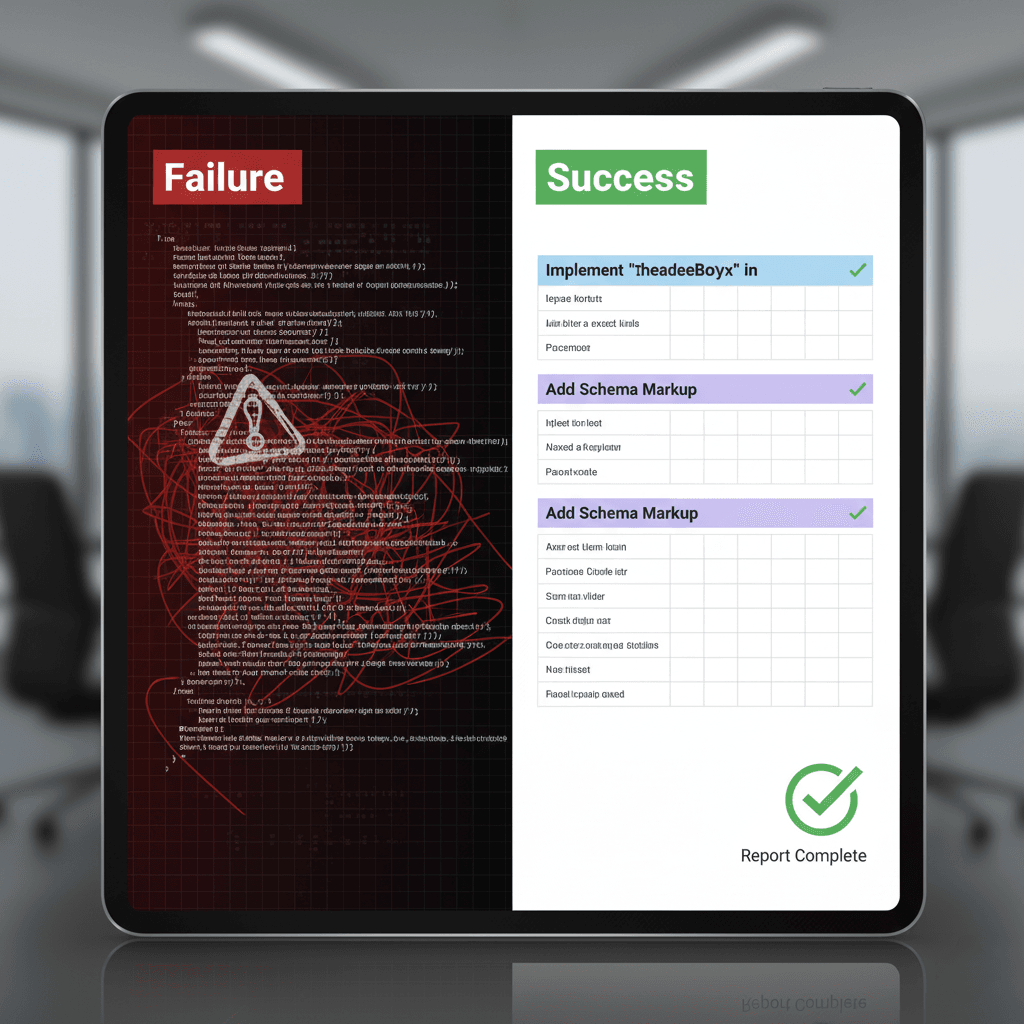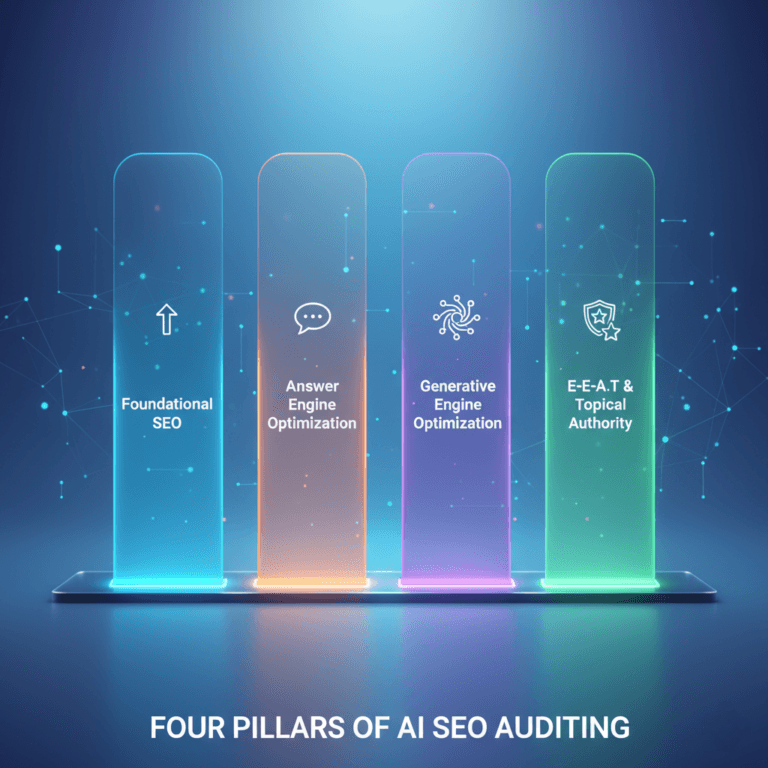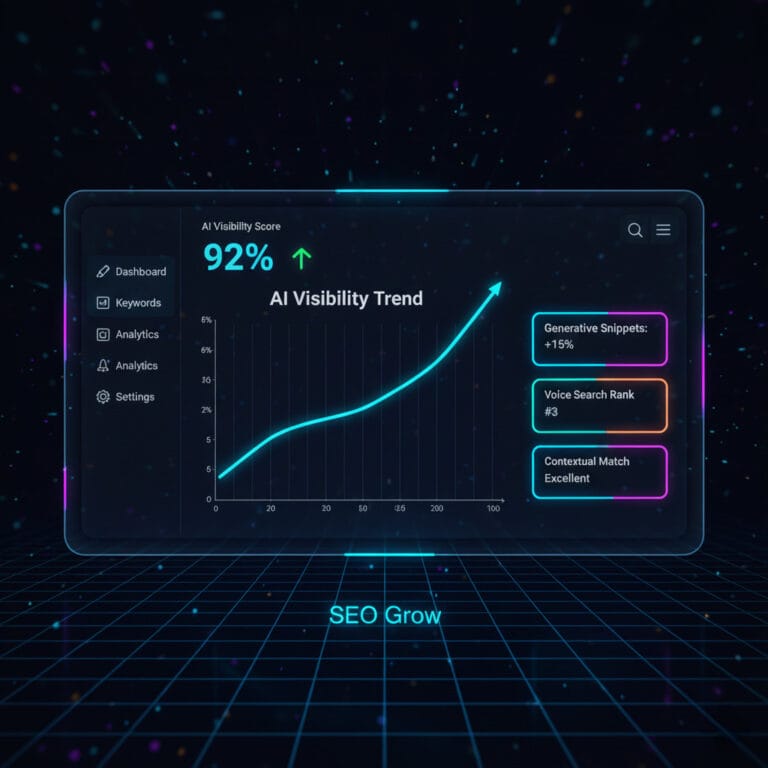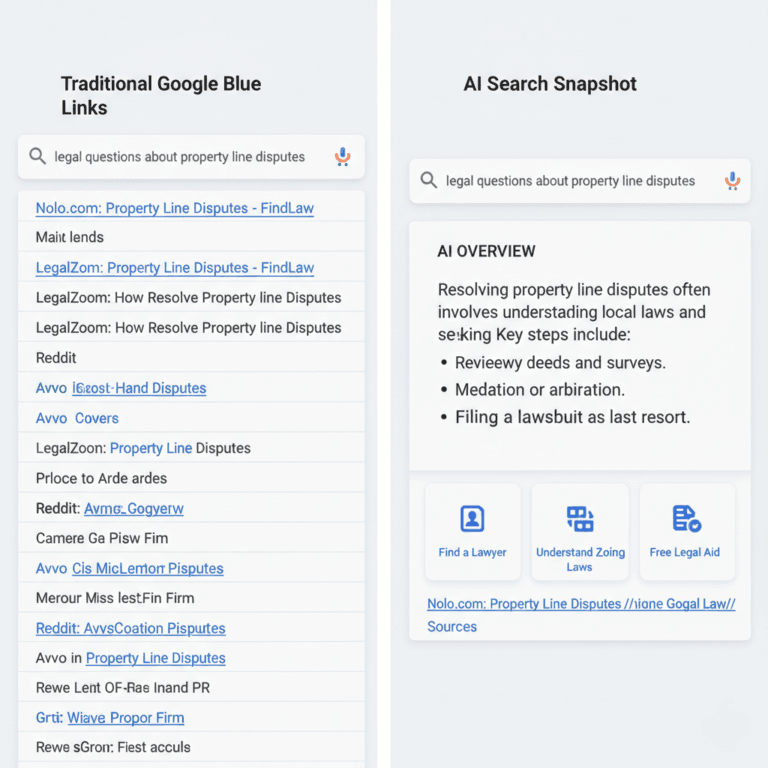The Ultimate GEO Audit Tool Guide: Why Generative Engine Optimization is the New Technical SEO
The rules of search have changed. If your technical SEO strategy is still focused purely on crawlability, you’re optimizing for a search engine that is rapidly becoming obsolete. The new barrier to entry isn’t ranking on page one; it’s being cited as the source of truth in the omnipresent AI Overviews.
This shift is so profound that industry experts are now signalling the death of traditional SEO
and urging businesses to adopt Generative Engine Optimization (GEO).
Table of Contents
The problem is that the tools built for the old web are failing the new test. Generic LLM SEO audit platforms that simply run a public AI over your content cannot detect the complex, rules-based signals that truly establish LLM trust. To win the future of search, you need a dedicated, proprietary geo audit tool.
SEO Grow’s proprietary, rules-based algorithm is the only platform capable of checking the advanced GEO signals that govern LLM citation. Stop relying on competitor tools that are glorified GPT wrappers.
Ready to see exactly what AI thinks of your website?
➡️ Run Your Free GEO Audit Now: Get Your Proprietary GEO Score ⬅️

What is Generative Engine Optimization (GEO)? The Battle for Citability
For the last decade, SEO professionals have focused on a simple goal: Ranking. You had to convince Google’s algorithm that you were the best result for a query.
Generative Engine Optimization (GEO) shifts that focus entirely. You are no longer trying to rank; you are trying to become a citable source of truth for Large Language Models (LLMs) and generative search engines like AI Overviews, Perplexity, and ChatGPT.
| Traditional Technical SEO Focus | Generative Engine Optimization (GEO) Focus |
| Crawlability (Can the bots access it?) | Citability (Can the LLM trust and attribute it?) |
| Keywords (Is the term used?) | Verifiability (Is the data backed by evidence?) |
| Google Rank (Position 1-10) | AI Overview Citation (Position 0) |
A successful geo audit isn’t about finding broken internal links; it’s about determining if your content is structurally and semantically trustworthy enough to be featured in the AI-generated answer. A failed GEO audit means complete invisibility in the future of search. To ensure your content is prepared for this new reality, you must focus on specific, actionable strategies to get cited in Google’s AI Overviews, prioritizing clear structure, schema, and original data.

Stop Wasting Time on LLM SEO Audits That Fail the Test
The market is flooded with generic “AI SEO” tools claiming to offer a generative engine optimization audit. In reality, most of these platforms are nothing more than a thin layer over a public LLM (like GPT-4), providing vague, surface-level suggestions like “improve content quality.”
That approach is a fatal flaw.
LLMs are trained on public data and, by design, cannot check for the proprietary, rules-based signals of trust. They don’t have the hard-coded logic to check for the structural integrity of your data or the specific attribution formatting that separates a guess from a source of truth. As the industry confirms, LLMs assess authority not just through backlinks, but by evaluating the semantic footprint and how LLMs and AI systems evaluate authority signals and content credibility based on trust, expertise, and demonstrated experience.
Our geo audit platform is different. SEO Grow’s algorithm is proprietary, rules-based, and specifically engineered to flag the four most critical GEO signals that LLMs prioritize when choosing a source to cite.
For a deeper look at traditional site evaluation, check out our detailed SEO Audit article.
Or you can read our expanded guide about AI SEO Audit’s.
The SEO Grow Difference: Four Rules-Based Checks Your Competitors Cannot Run
Our geo audit tool provides a comprehensive, deep-scan assessment based on verifiable rules—not a public LLM’s best guess. This is your definitive geo audit checklist.
1. Data Density and Numerical Verification
LLMs are highly skeptical of content that makes claims without presenting the supporting data. Our rules-based system scans for a minimum threshold of numerical, statistical, or financial data points. If you claim your product boosts ROI by 40%, but the page contains zero corresponding numbers (like “40%”, “4 out of 10 users,” or “Q3 revenue”), our system flags it. Generic tools cannot perform this crucial numerical verification.
2. Verifiable Source Citations (Attribution Formatting)
Citability requires clear attribution. We audit the formatting and placement of your source citations, ensuring they are structured in a way that LLMs can easily parse and trust. This goes beyond simple E-E-A-T analysis; we check the semantic structure that proves an author is referencing external authority, making your content less “opinion” and more verified fact.
3. Structured Data for LLMs (HTML Tables)
While basic Schema Markup is necessary, LLMs are increasingly relying on clearly formatted, tabular data within the HTML. Our audit specifically checks for the presence and structure of HTML Tables containing key comparison points, features, or numerical data. This is how you optimize for LLM-ready snippets that populate instant-answer boxes.
4. Originality Signals and Proprietary Insight Scanning
The fastest way to lose citability is to sound like every other source on the web. Our algorithm scans for specific Originality Signals—unique phrases like “our data shows,” “in a Q3 survey of our users,” or “according to our proprietary research.” These phrases prove your content is built on unique insights, establishing you as a true category authority.

From Vague Suggestions to Tactical Fixes: The Actionable GEO Audit Checklist
The value of an audit is not in identifying a problem; it’s in providing the exact solution.
Unlike competitor geo audit services that offer vague guidance, the output from the SEO Grow geo audit platform is a tactical, step-by-step roadmap. Every flagged issue comes with a color-coded criterion, a clear analysis of why you failed the check, and a non-negotiable recommendation:
- Not: “Improve your content.”
- But: “The table data structure on line 147 is not parseable. Implement the following
<thead>/<tbody>tags to fix the LLM Schema.”

The Ultimate Agency Asset: White-Label Reports
For agencies, the SEO Grow Pro Plan is a client-winning asset. Our detailed, high-quality geo audit reports can be white-labeled with your logo and expert summary, instantly transforming a prospect conversation into a high-value, data-driven engagement. This is how you prove ROI and become the indispensable partner in the AI era.
The Final Takeaway: Your GEO Score is Your New Technical Barrier
Generative Engine Optimization is no longer a future-facing strategy; it is the current technical barrier to entry. If you are still relying on tools built for 2018’s version of Google, you are conceding the entire AI-driven search landscape to your competitors.
To establish true E-E-A-T, prove category authority, and secure your site’s place as a citable source of truth, you need an algorithm that thinks like the LLMs themselves.
The time for generic llm seo audit wrappers is over. The time for proprietary, rules-based GEO is now.
Run Your Free Audit to See Your GEO Score and Get Your Tactical Fixes.






